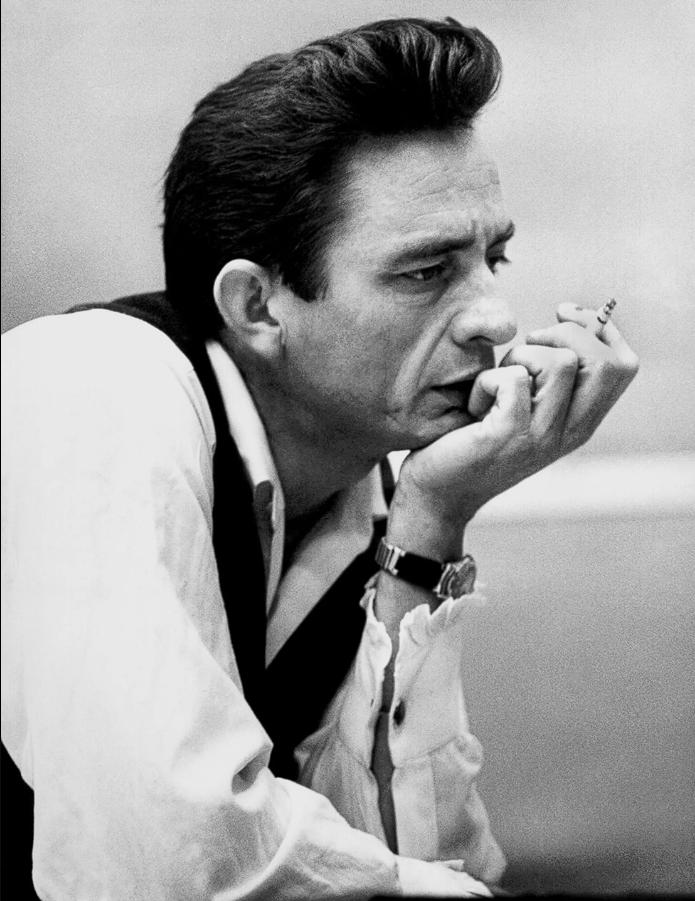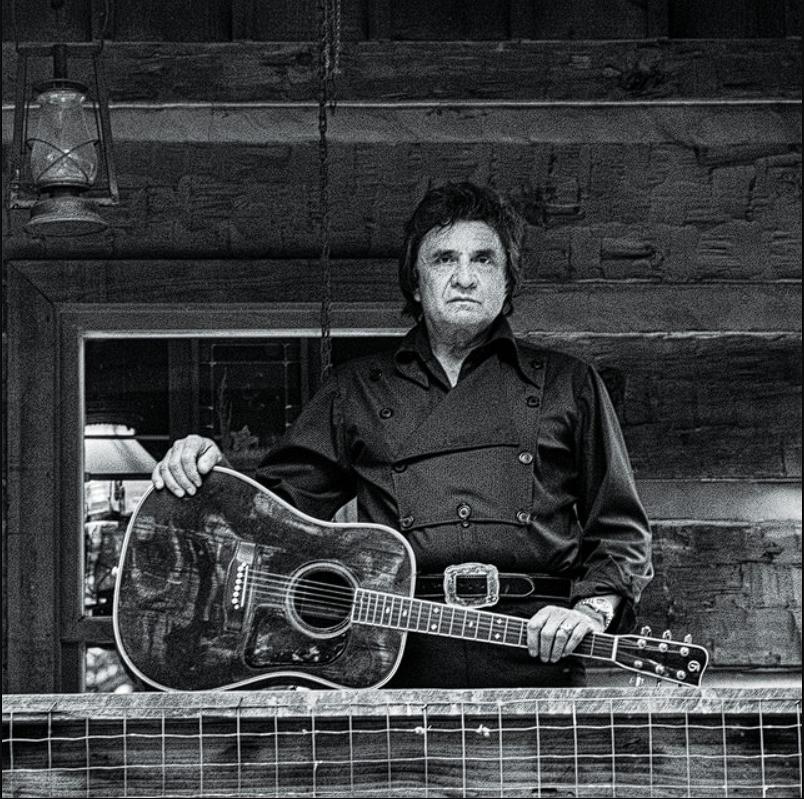Johnny Cash: The Man in Black Who Redefined American Music
From Poverty to Stardom
Johnny Cash, known as the “Man in Black,” is one of the most influential figures in the history of American music. His deep, gravelly voice, signature black attire, and raw, unflinching lyrics defined him as an artist who spoke for the marginalized and the forgotten. Cash’s music, blending country, rock, blues, and gospel, transcended genres and captured the hearts of millions. However, his journey to fame was not one of easy glory but one marked by personal struggles, redemption, and an unwavering commitment to give voice to the voiceless.
Born on February 26, 1932, in Kingsland, Arkansas, Johnny Cash grew up in poverty during the Great Depression. His humble beginnings shaped not only his music but also his sense of empathy for the suffering of others. The hardships of his early life — working the cotton fields with his family — fueled the passion and emotional depth that would later be reflected in his songs. Music was his escape, and by his teenage years, Cash was already writing songs that would resonate with generations of listeners.
The Breakthrough: “I Walk the Line”
Cash’s big break came in 1954 when he was discovered by legendary producer Sam Phillips at Sun Records. His debut single, “Hey Porter,” was an instant success, and soon he was making waves in the music scene. But it was his subsequent hit, “I Walk the Line,” in 1956 that solidified him as one of country music’s leading voices. The song’s distinctive rhythm and Cash’s pledge of loyalty to his wife, June Carter, made it an enduring anthem. But beneath this musical success, Cash was already struggling with addiction — a battle that would define much of his life.
The Dark Side of Fame: Struggles with Addiction
Fame, however, was tinged with a darker side as Cash battled alcohol and drug abuse, which plagued his career and personal life for years. His addiction brought him to rock-bottom, and he faced personal and professional crises. His marriage to his first wife, Vivian Liberto, crumbled under the strain of his addiction and the pressures of his rising fame. Cash’s downward spiral was nearly his undoing, but it was during this turbulent period that he found his salvation in music, faith, and, eventually, love.
The Power of Love and Redemption
In the 1960s, as Cash’s career continued to soar, he struggled with addiction and personal demons that threatened to destroy him. It was at this point that he met June Carter, who would become his wife and the woman who helped him find the strength to overcome his vices. Their relationship was one of profound love and mutual respect, and June was instrumental in his journey toward sobriety. They shared an extraordinary connection, both on and off stage, and together, they created some of the most memorable and powerful songs in country music history. The couple’s duets, including “Jackson” and “It Ain’t Me Babe,” remain iconic, capturing their chemistry and the enduring love they had for one another.
A Voice for the Marginalized
Cash’s struggles with addiction were not over, but through his battles, he found a new sense of purpose. He became a voice for the oppressed, the prisoners, and the forgotten. His infamous concerts at Folsom Prison and San Quentin Prison in the 1960s made him a hero to the incarcerated, and his songs such as “Folsom Prison Blues” and “Man in Black” became anthems of solidarity for those living on society’s margins. His “Man in Black” persona was not just an aesthetic choice but a statement of solidarity with the poor, the broken, and the lost souls of America.
Later Years: A Legacy of Redemption
In his later years, Cash continued to produce music that resonated with deep emotion and humanity. His cover of Nine Inch Nails’ “Hurt,” released in 2002, is widely regarded as one of the most profound expressions of his own mortality and struggles. The hauntingly beautiful video for the song, which shows Cash reflecting on his life, is a powerful testament to his legacy as an artist who faced the darkness within himself and turned it into something universal and deeply moving.
A Cultural Icon
Johnny Cash passed away on September 12, 2003, but his music continues to live on. He remains a cultural icon whose voice still speaks to the lost, the lonely, and the marginalized. His life story is one of redemption, proving that even in the darkest times, there is always the possibility of finding light. Johnny Cash’s music transcends generations, and his legacy is immortalized in the timeless power of his voice, his songs, and his message of empathy, love, and resilience.
